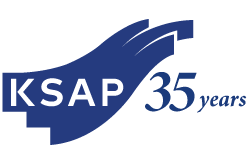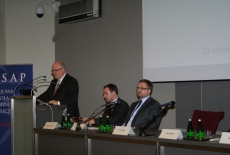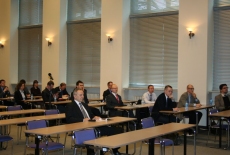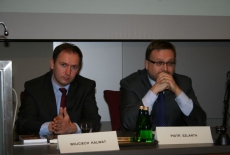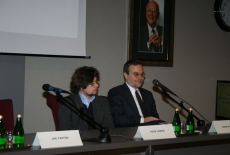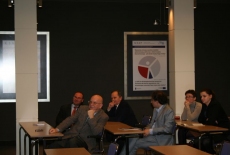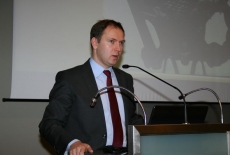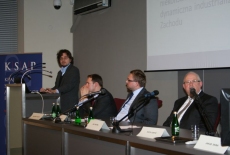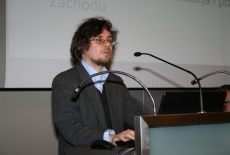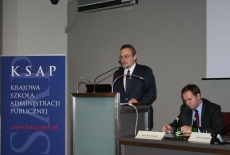The Significance of the January uprising for polish history
The Director was delighted to host a 150th-anniversary Conference of the above title run at KSAP on January 23rd, giving participants a unrivalled opportunity to acquaint themselves with expert views on the events of 1863-5.

First speaker Wojciech Kalwat invoked a background including the struggle to unify Italy and Russia’s defeat in the Crimean War, as well as the Tsar’s bloody efforts to suppress demonstrating Varsovians in 1861, the consequences proving unifying in that they cost the lives of a schoolboy, a tailor’s apprentice, a worker and two members of the landed gentry, with Catholicism, Protestantism and Judaism all represented among the victims.
Reference was in turn made to the non-rebellious Aleksander Wielopolski, whose actions served to hinder the work of conspiratorial organisations. For his part, speaker Piotr Szlanta, describing the international context, characterised the French as supportive - thanks to their desire for a redrawn map of Europe that kept Germany fragmented; the Prussians as pro-Russian and anti-French; the Austrians as pro a status quo that would keep Hungarian separatism suppressed and the British as likewise fearing radical change on account of the sheer complexity of any situation that would arise in that case. Piotr Koryś - addressing the socioeconomic context - contrasted a dynamic Western Europe with a backward, little-urbanised and weakly-industrialised Russia. Finally, in considering the overall contemporary point of view, KSAP graduate and Member of the National Bank of Poland Board Jakub Skiba took the floor, again noting economic effects that left Warsaw as third most significant city in the Empire after Moscow and St. Petersburg, with Poles able to make careers if they chose to do so. Mr Skiba also returned to the matter of Wielopolski, noting on the plus side the Margrave’s efforts to polonise administration, establish local government, rebuild education, enfranchise peasants and emancipate Jews. The event ended with a screening of Juliusz Machulski’s 97-minute film from 1992 entitled “Szwadron” (“The Squadron”).

